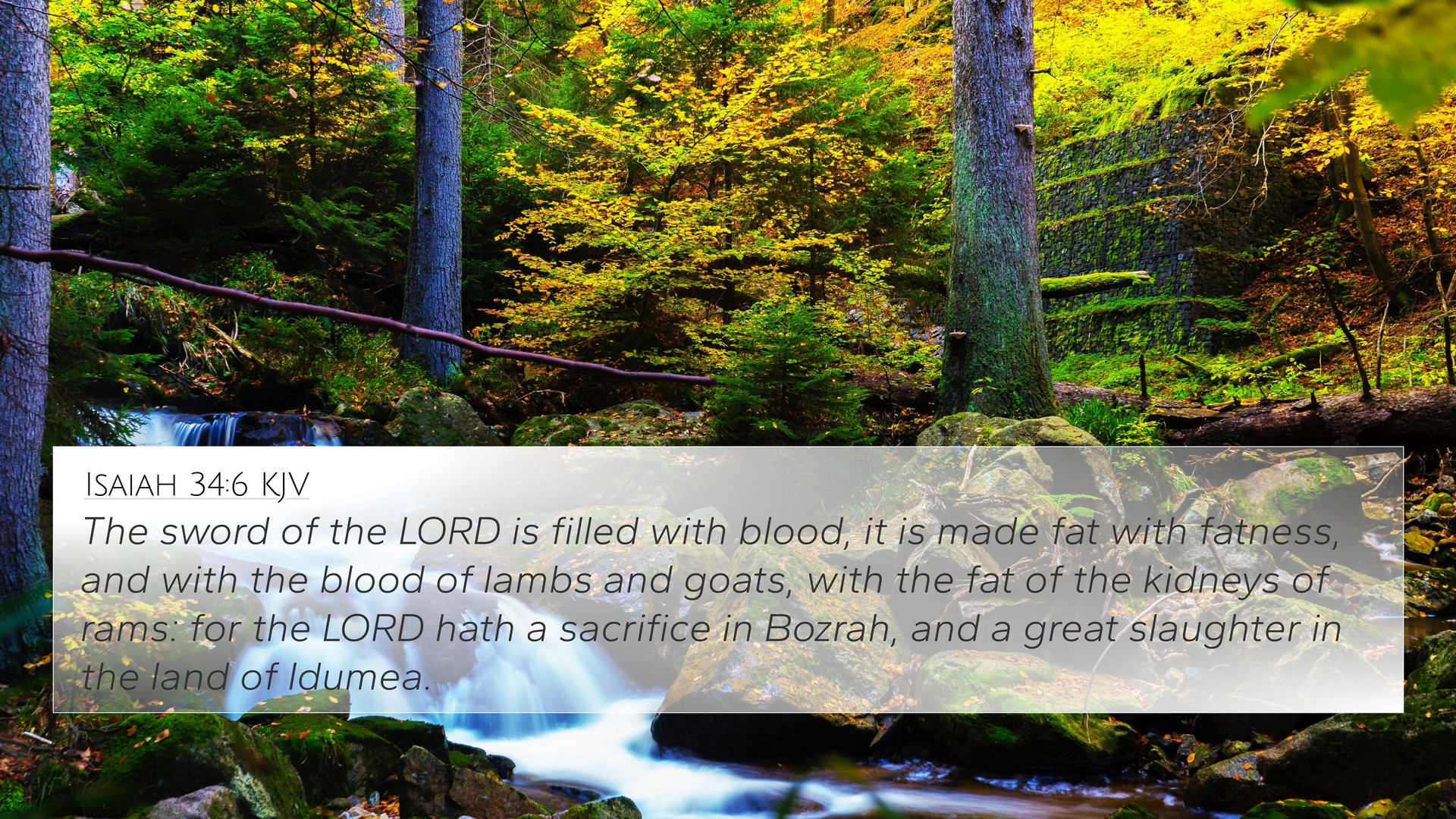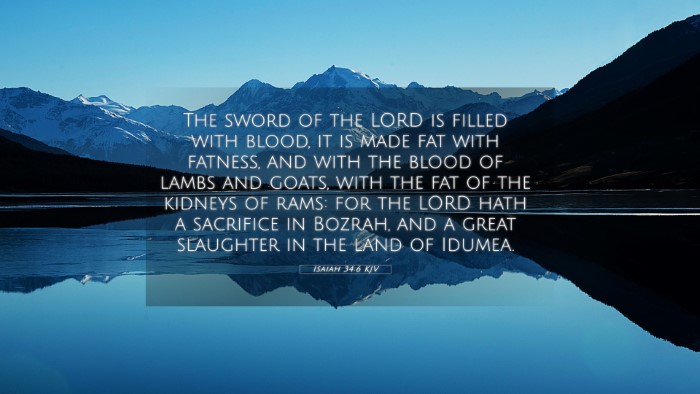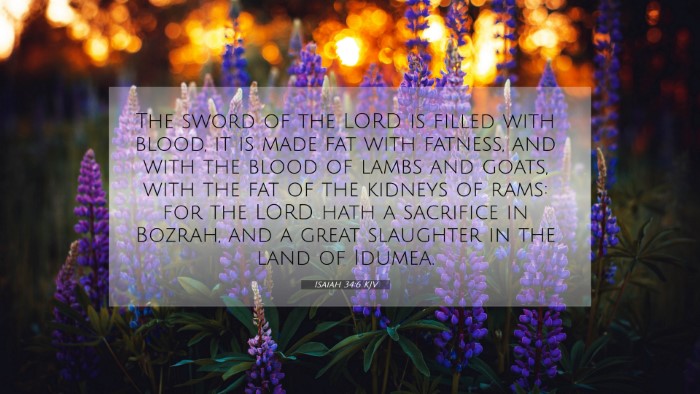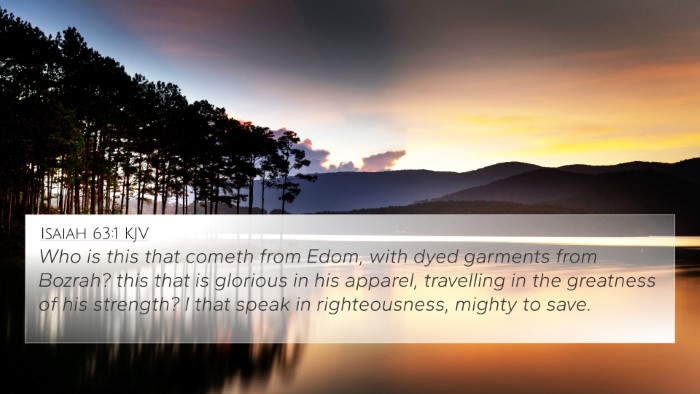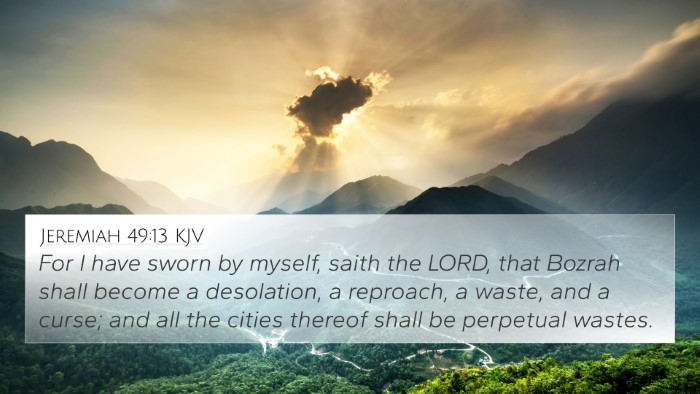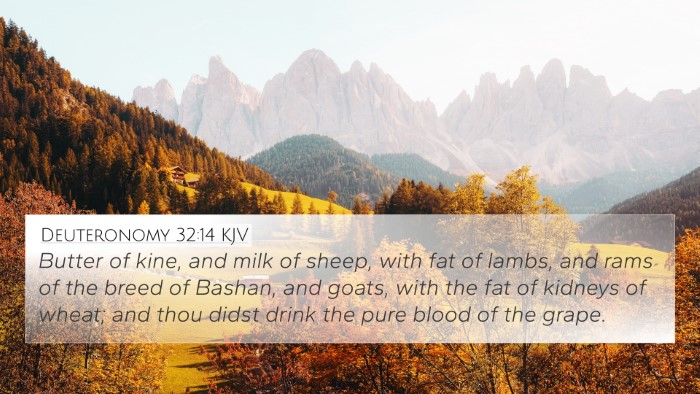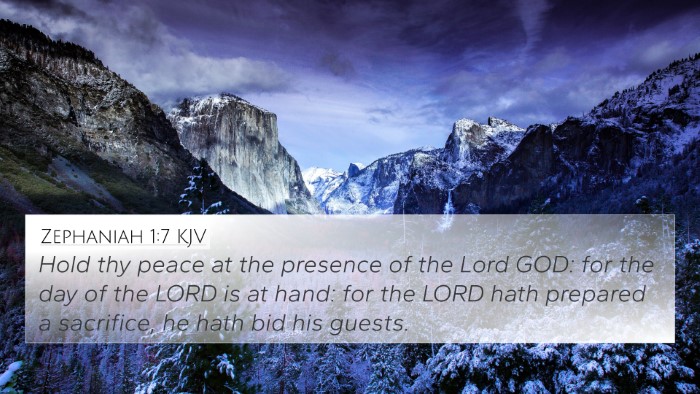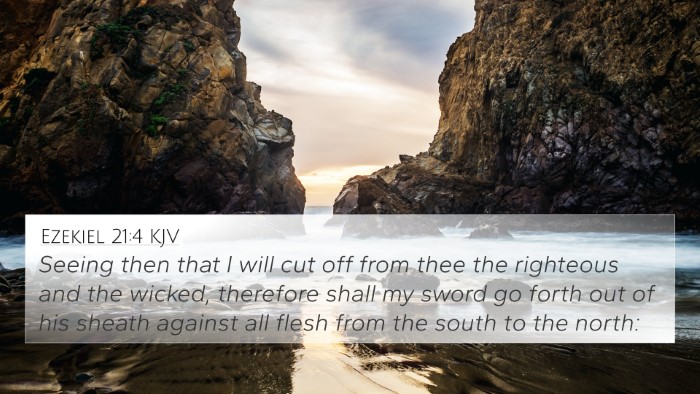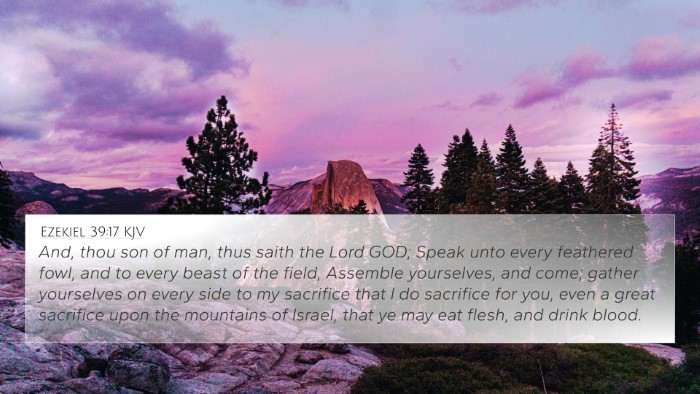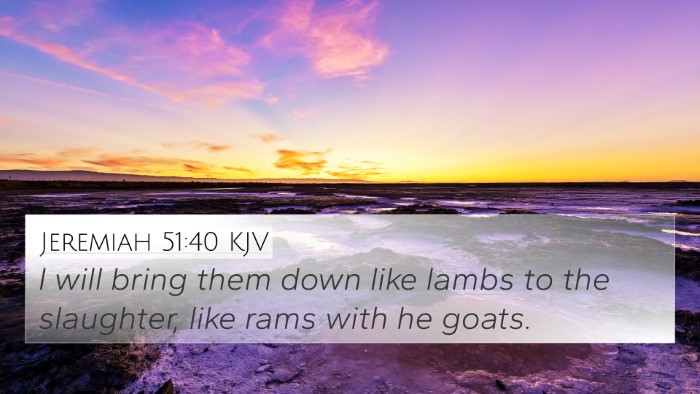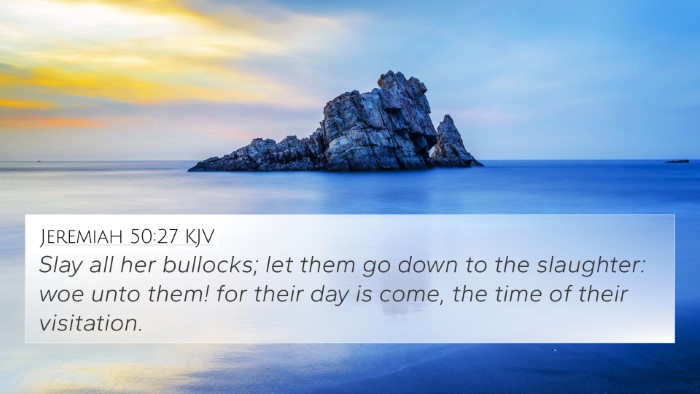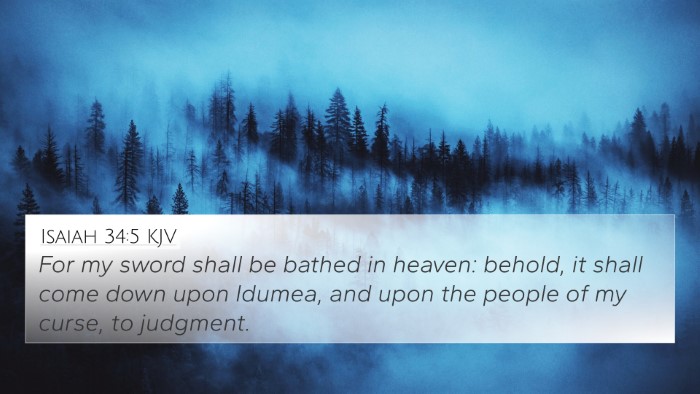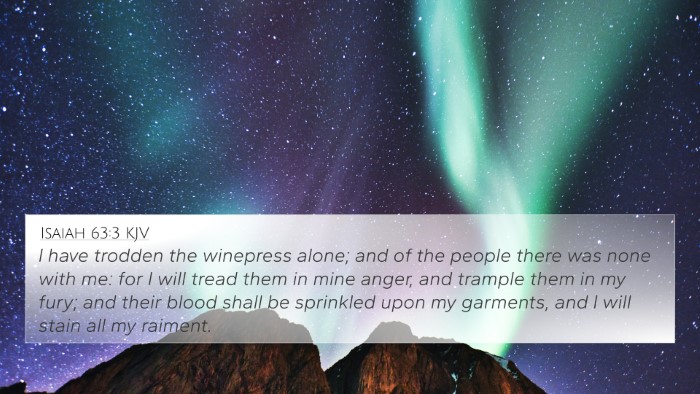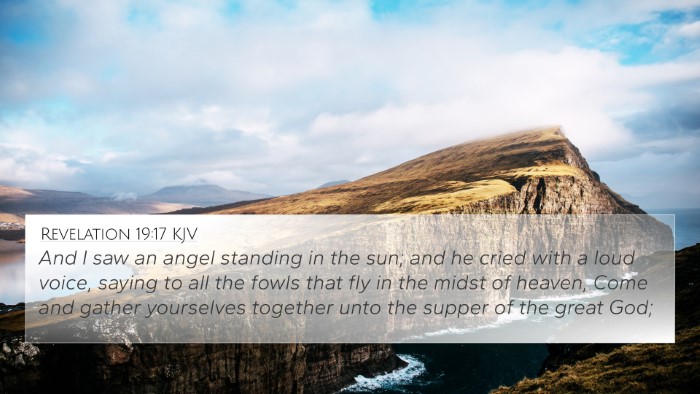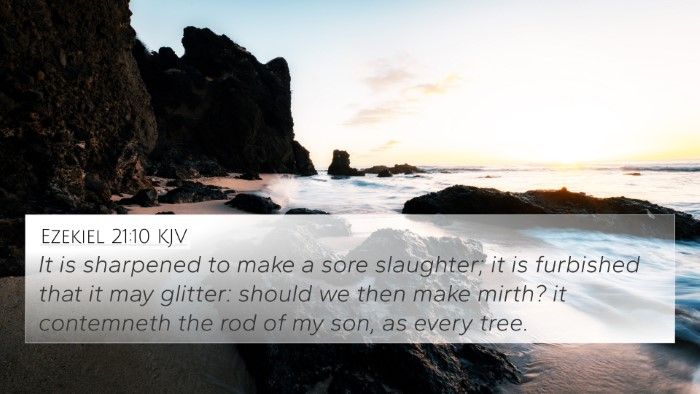Understanding Isaiah 34:6
Isaiah 34:6, which states, "The sword of the LORD is filled with blood; it is made fat with fatness, and with the blood of lambs and goats, with the fat of the kidneys of rams: for the LORD hath a sacrifice in Bozrah, and a great slaughter in the land of Idumea," provides a vivid image of divine judgment and the consequences of rebellion against God. Below, we summarize the interpretations from various public domain commentaries combined for a deeper understanding of the text.
General Overview
This verse is part of a prophecy against Edom, signifying God's fierce judgment on nations that oppose Him. The references to blood and sacrifice underscore the seriousness of sin and the reality of divine retribution.
Commentary Insights
- Matthew Henry: Henry emphasizes that this verse illustrates God's vengeance and the extensive measures He takes to execute justice. The metaphor of the sword signifies severe punishment that is both deserved and necessary for the people who have acted wickedly.
- Albert Barnes: Barnes discusses the phrase "filled with blood," relating it to past sacrifices made according to the Law. He connects this to the fulfillment of God’s wrath and the solemn nature of divine justice manifested during moral decay and rebellion against Him.
- Adam Clarke: Clarke notes the significance of Edom's judgment as an example for all nations. His commentary reflects on the sacrificial imagery to signify the devastating consequences of sin and disobedience before God, emphasizing that divine judgment is not arbitrary but rather a response to severe wrongdoing.
Bible Verse Cross-References
To enhance the understanding of Isaiah 34:6, it can be highly beneficial to cross-reference this verse with other scriptures that elaborate on similar themes of judgment, sacrifice, and the sovereignty of God over nations. Here are some pertinent references:
- Revelation 19:13-15: Discusses the robe dipped in blood, a direct connection to divine judgment.
- Jeremiah 46:10: Contemplates the day of the Lord, indicating that it is a day of vengeance.
- Ezekiel 39:17-20: Illustrates a great slaughter and the gathering of carrion birds, echoing the sacrificial language of Isaiah.
- Hebrews 9:22: States that without the shedding of blood, there is no remission of sins, connecting the concept of sacrifice throughout the biblical narrative.
- Psalm 76:3: Highlights God's established presence as a place of judgment, relating to both the Old and New Testaments.
- Isaiah 63:1-6: Discusses God's vengeance and the trampling of nations, providing a thematic parallel to Isaiah 34:6.
- Romans 12:19: Suggests that vengeance belongs to the Lord, reinforcing that divine retribution is just and intentional.
Connections Between Bible Verses
The analysis of Isaiah 34:6 reveals distinct connections with various scriptures that share the theme of God's judgment:
- Linking Scripture: The references to judgment in Isaiah are echoed in both Jeremiah and Revelations, indicating a consistent thematic portrayal of God's righteous retribution.
- Comparative Analysis: By comparing passages from the prophetic books with the teachings found in Psalms and the New Testament, one can see a unified message about the consequences of sin and the seriousness of God’s judgment.
- Bible Concordance: Utilizing a concordance reveals patterns where God's sword and sacrifices are mentioned throughout Scripture, helping understand the underlying theme of sacrificial atonement and judgment.
Tools for Bible Cross-Referencing
For a deeper study, various tools and methods can be employed to conduct cross-reference studies:
- Utilize a Bible concordance to find thematic references quickly.
- Engage with a cross-reference Bible study guide to navigate through related verses effectively.
- Implement cross-referencing Bible study methods to draw connections between different books and themes.
Inter-Biblical Dialogues
This verse invites a dialogue between Old Testament prophecies and their fulfillments in the New Testament, particularly in portraying God as a God of justice. Themes found in Isaiah find their resolution in the New Testament teachings about God’s nature and the ultimate sacrifice made for humanity.
Conclusion
Isaiah 34:6 serves as a powerful reminder of God’s sovereignty and the serious nature of divine judgment. By understanding this verse through the lens of cross-references within the Bible, one can appreciate the broader context of God's dealings with humanity and the relevance of divine justice throughout Scripture.
